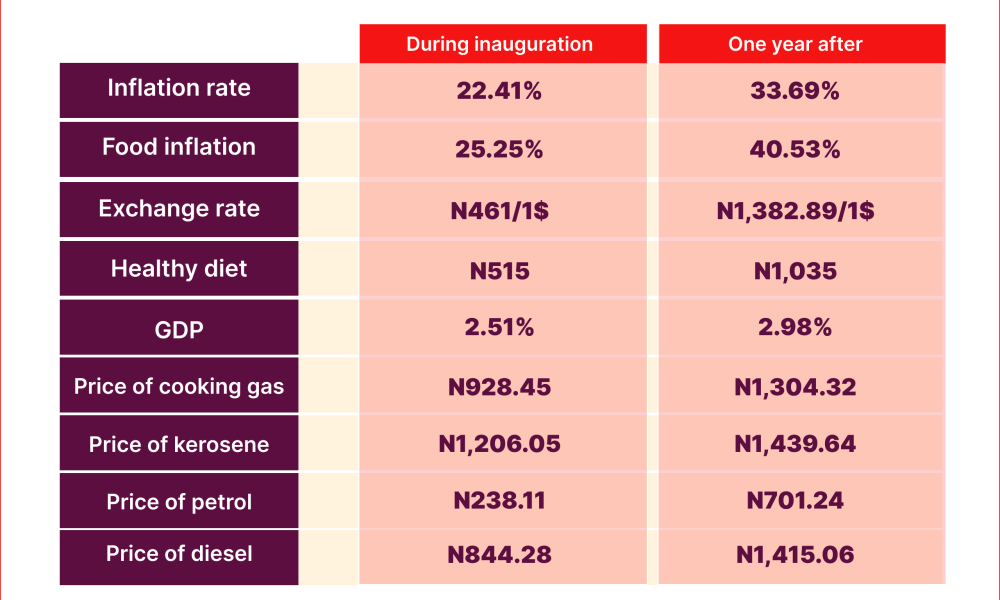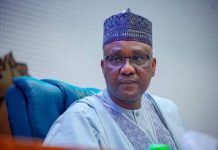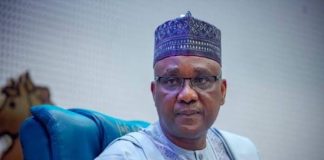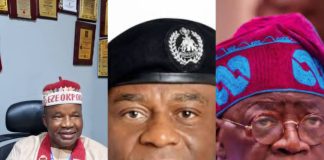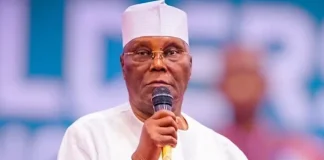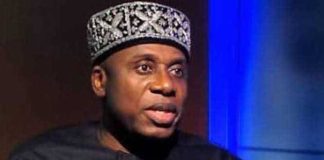🌿 Ruzu Non-Alcoholic Herbal Bitters
Ruzu Non-Alcoholic Herbal Bitters is a natural health supplement specially formulated to:
- ✅ Promote general wellness
- ✅ Detoxify the body
- ✅ Support the treatment of various ailments
Made from a powerful blend of 100% organic and medicinal herbs, Ruzu is completely alcohol-free, making it ideal for:
- 👪 All age groups
- 🌱 Health-conscious individuals
- 🌿 Anyone seeking non-alcoholic herbal remedies
Whether you're looking to boost your vitality, cleanse your system, or support healing the natural way, Ruzu Bitters offers a trusted herbal solution.
President Bola Tinubu assumed office as the 16th president of Nigeria on May 29 2023 after winning the general elections in February 2023 defecting other 17 candidates with 8.79 million votes.
At his inauguration, Tinubu said, “Our administration shall govern on your behalf but never rule over you. We shall consult and dialogue but never dictate. We shall reach out to all but never put down a single person for holding views contrary to our own.
“We are here to further mend and heal this nation, not tear and injure it.”
However, while giving his speech, the president announced the removal of fuel subsidies among other promises he listed to be fulfilled under his administration. The removal subjected to criticisms and controversies tied to his predecessor, Muhammadu Buhari, impacted the economy wildly. RipplesMetric findings showed that all economic indications had increased almost beyond 100 per cent within months during his administration.
This report looks into economic indices like inflation rate, food inflation, exchange rate, fuel and other crude oil products, healthy diet cost, and the Gross Domestic Product rate. The data obtained from the National Bureau of Statistics juxtaposed the index rate between the time the president assumed office and one year after.
What the data says
Inflation rate: As of when the president assumed office, the inflation rate was at 22.41 per cent. Although the inflation rate had consecutively increased from January 2023, when it was 21.82 per cent. However, the latest data showed that the inflation rate has risen to 33.69 per cent as of April 2024. Notably, this is the highest figure since 1996. The rate had also increased consecutively within the first year of Tinubu’s administration
READ ALSO:RipplesMetrics… 2024 STATES’ BUDGET: Assemblies, Governors’ offices take lion share (Part II)
Food inflation: Just like the inflation rate, the food inflation rate also consecutively increased within one year of this administration. When the president came into power, the food inflation rate was 25.25 per cent but the latest data from NBS shows that the rate has increased to 40.53 in April 2023.
Exchange rate: Some weeks after Tinubu’s inauguration, a policy was issued by the Central Bank of Nigeria to unify the exchange rate in both the banking system and the parallel market. As of then, the exchange rate was N461 to 1$. As of the time of writing this report, the dollar to naira was exchanged at N1,382.89/1$.
Prices of Crude oil products: Within one year, the price of cooking gas increased from N928.45 for 1 kg to N1,304.32. The price of 1 litre of Kerosene increased from N1,206.05 to N1,439.64. Also, the price of a litre of petrol and diesel increased from N238.11 and N844.28 to N701.24 and N1,415.06 respectively.
Healthy diet: The cost of a healthy diet as of June 2023 was N515. However, the latest data have shown that this has risen to N1,035 as of April 2024.
GDP: By the end of the second quarter of 2023, Nigeria’s GDP stood at 2.51 per cent. Although there was a significant increase in the GDP by quarter owing to sectors like agriculture, trade and ICT contributing more than 45 per cent to the GDP growth. But, the latest data shows that Nigeria’s GDP dropped to 2.98 per cent as of the first quarter of 2024.
By: James Odunayo
If you like what we do, and are ready to uphold solutions journalism, kindly donate to the Ripples Nigeria cause.

